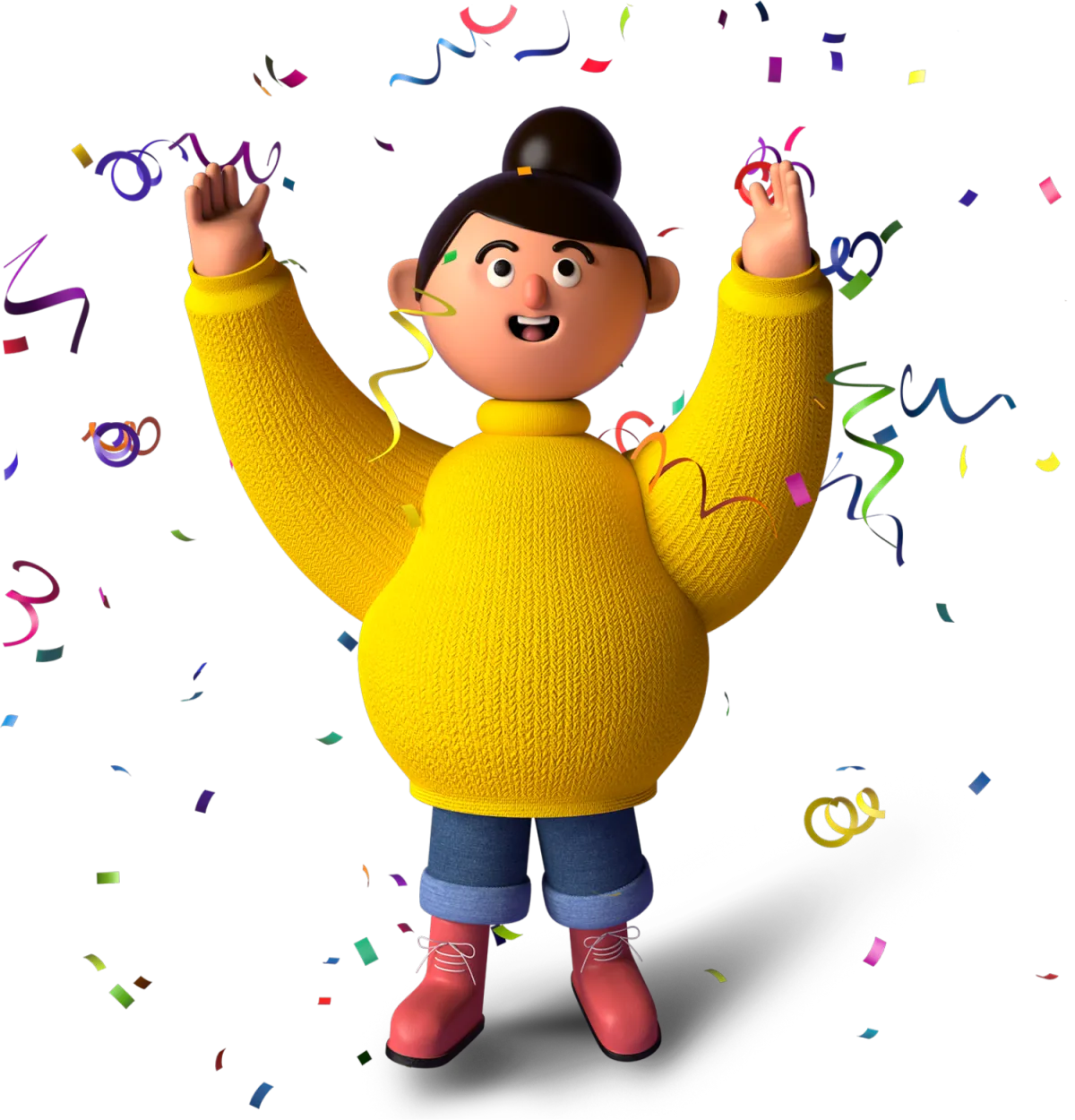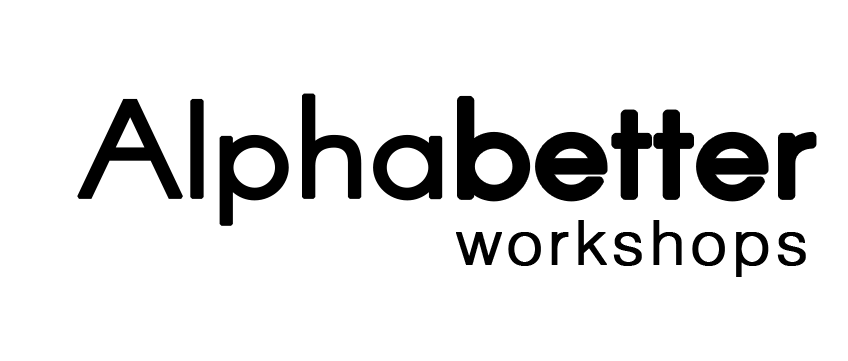About Us
Why our results often surprise families (in the best way)

What we stand for
At Alphabetter Workshops, we challenge the idea that learning issues are life sentences. We reject the belief that messy handwriting, poor spelling, slow reading, difficulty expressing thoughts, or inconsistent focus are permanent barriers to success.
Our approach starts with a fundamental shift — valuing and teaching the alphabet and communication as the building blocks for lifelong learning. When we merge the latest research from the sciences of learning, communication, and happiness, everything changes.
We use evidence-based, holistic methods that follow Universal Design principles, ensuring every learning style, age, and ability can benefit.
How We're Different
Traditional education can be slow to adapt, often relying on outdated measures of ability and potential. Too often, “accommodations” leave students feeling singled out, inadequate, or isolated — emotions that fuel stress and contribute to the growing mental health crisis. We take a different path: learning as a family, for life.
When parents, children, and siblings grow together, they support each other’s progress and create a culture of connection, encouragement, and mutual success. That’s why our results last — and why they feel so different.
Our Vision
A world where families learn, grow, and thrive together —
building empathy, courage, and resilience through
shared, multi-generational, multi-sensory learning experiences.
What we do.
We connect 100,000+ qualified prospects looking for financial advice, lending, protection, debt help and claims to advisors and brokers every year.


Our promise to you:
Whatever your story — whether it’s messy writing, poor spelling, slow reading, or difficulty focusing — we believe that in a matter of hours, you can learn to use your head, heart, and hands to activate your unique genius for a lifetime of success.
We promise:
No boring, endless drills
Fun, game-based learning experiences
Evidence-based strategies that stick
And most importantly, you won’t be doing it alone — your whole family will be right there with you.
We will always provide the best service.
We don't launch rockets. We just generate leads from Google, Bing and YouTube, connecting them with your team in real time. And you know what, we're bloody good at it.
Get leads from our existing matured campaigns.
Let us build bespoke lead-gen campaigns in your brand.
Deploy our AI sales androids to boost contact rate.
Utilise our proven systems and technology to increase your return on ad spend.

What We Do
Your proven customer acquisition system that increases conversion rates at every step of the customer journey so you can enjoy record breaking sales.
Effective Lead Generation
Strategically focused on high-intent leads generation tactics from Google, Bing, & YouTube.
Database Reactivation
Turn your old data into fresh appointments and sales, utilising our sales android that never rests.
Appointment Setting
Transform your contact rate and campaign profitability with our appointment setting sales android.
Blog
Your proven customer acquisition system that increases conversion rates at every step of the customer journey so you can enjoy record breaking sales.

✨ Dysgraphia vs Dyslexia: Why Both Matter
“Dyslexia gets attention. Dysgraphia gets overlooked. But both change lives in profound ways.” --Diane Devenyi
Introduction
If you’ve spent time in education or business circles, you’ve probably heard of dyslexia. In fact, LinkedIn even lists “Dyslexic Thinking” as a skill — a recognition of the unique creativity, problem-solving, and big-picture strengths that can come with a dyslexic brain.
But what about dysgraphia?
Despite affecting millions of children and adults, dysgraphia rarely makes headlines, appears on skill lists, or gets the attention it deserves. Yet its impact on daily life, school performance, and confidence is just as profound — sometimes even more so.
Dyslexia: Bringing the Outside In
Dyslexia is typically described as difficulty processing written words — a challenge with bringing what’s on the outside (books, screens, text) inward for comprehension.
Trouble decoding printed text
Slow, effortful reading
Struggles with fluency and comprehension
Strengths often found in visual-spatial reasoning and creativity
This is why “dyslexic thinking” has been celebrated: dyslexic individuals often excel at seeing connections others miss.
Dysgraphia: Bringing the Inside Out
Dysgraphia, on the other hand, is almost the mirror opposite. It is:
“The inability to produce letters, words, or sentences that follow conventional rules for letter condition, placement or position, punctuation or grammar. This includes messy writing, poor spelling, trouble expressing thoughts, and attention issues when writing.”
In short, dysgraphia is about difficulty bringing what’s on the inside (thoughts, ideas, understanding) outward onto the page.
Signs can include:
Messy or inconsistent handwriting
Poor spelling, even with strong reading skills
Trouble expressing thoughts in writing, despite clear verbal expression
Attention struggles linked to the effort of writing itself

Why Dysgraphia Deserves Equal Attention
Dysgraphia doesn’t just affect schoolwork — it affects identity. A child who understands material but can’t show it on paper is often mislabeled as careless, lazy, or unfocused. Adults with dysgraphia may avoid jobs, tasks, or opportunities that require written communication.
And unlike dyslexia, dysgraphia rarely receives cultural recognition or is framed in strengths-based terms. There’s no LinkedIn skill for “Dysgraphic Thinking” — yet its effects ripple through confidence, career, and self-belief.
The Overlooked Impact
Students with dysgraphia may silently fail tests, not from lack of knowledge but from inability to express it.
Parents often feel frustrated, wondering why their child’s spoken brilliance doesn’t match their written work.
Educators may misinterpret dysgraphia as laziness, carelessness, or even defiance.
When we overlook dysgraphia, we overlook hidden genius.
Moving Forward: Literacy Solutions for Both
It’s time to give dysgraphia the same level of awareness, advocacy, and solutions that dyslexia has received. Both are real. Both matter. And both require us to expand our definition of literacy.
Through multi-sensory learning approaches, literacy assessments like the Hidden Genius Literacy Assessment, and a willingness to see differently, we can unlock potential that has been trapped by conventional definitions of reading and writing.
What's Project 111K?
It's a global call to action: By the end of 2026, let's bring the Hidden Genius Literacy Assessment to 111,000 children and adults— and change the way the world understands learning!
Curious About
Alphabetter for Your School?
Request an info kit or book a discovery call with us
It's never too late or too early
to re-learn the alphabet,
and the process boosts your brain power
-- no matter how old or young you are!
Follow Us
Toronto ON
Canada
+1 (647) 317-1727
© 2025 The Learning Force Inc.. All rights reserved.

Facebook
Instagram
X
LinkedIn
Youtube